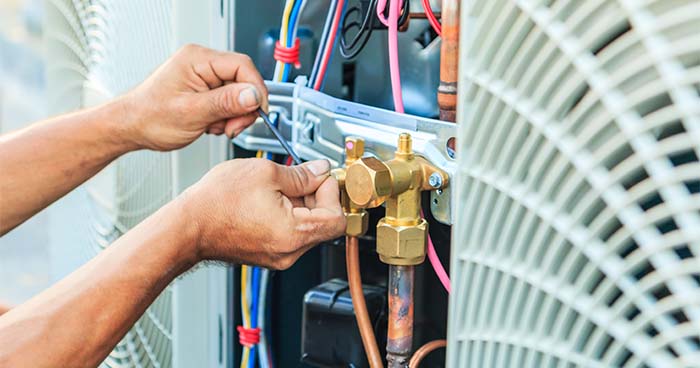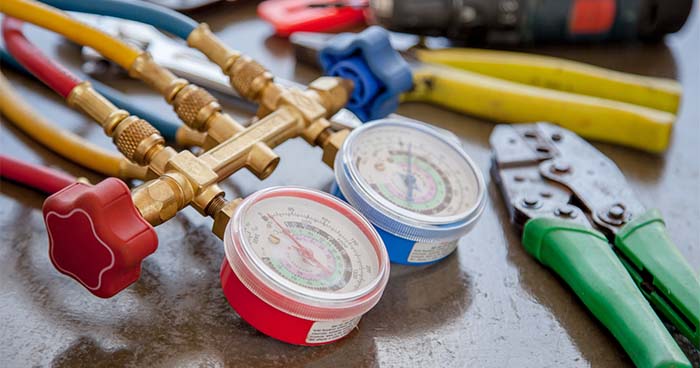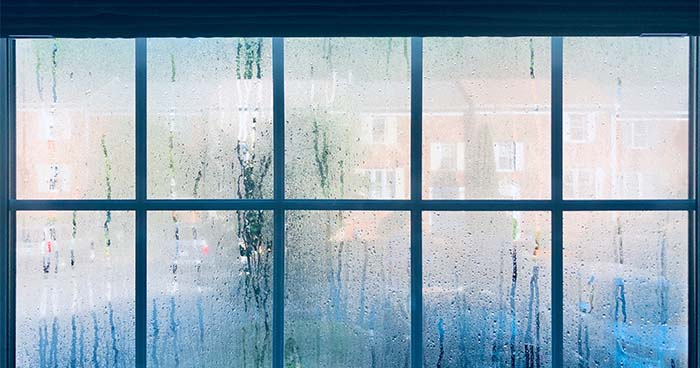Nothing on our planet is eternal. Everything has a lifespan. And while technology is evolving with a heavier focus on longevity, all appliances, including your air conditioner does have a cut-off date.
In this post, we’ll discuss how long air conditioners last and the variable factors that influence its longevity, as well as what you can do to lengthen your air conditioner’s service time. Finally, we’ll teach you the telltale signs of a broken air conditioner and when to replace it.
How Long Do Air Conditioners Last? The Lifespan of an Air Conditioner
Ultimately, there are so many variables that will impact the answer to this question. The lifespan of an air conditioner is highly influenced by its owner.
Say, for example, you live in a warmer state where you have your air conditioning running every day of the spring and summer. That air conditioner will have a lower lifespan than one that’s used less frequently.
However, if you stick to your air conditioner maintenance routine and use it effectively, a solidly built air conditioner can last anywhere between 10 and 15 years. It’s possible for yours to last this long, too. You simply need to learn how to increase the lifespan of your air conditioner.
With that in mind, let’s move on to…
How to Increase the Lifespan of Your Air Conditioner
The more you look after your air conditioner, the longer it will thrive. It’s like anything — if you take care of it, you can keep it for longer.
For your air conditioner to work at maximum efficiency and add years onto its lifespan, follow our tips:
Schedule Two Tune-Ups Per Year
Some homeowners often schedule tune-ups once it’s too late. Your air conditioner has packed in, it’s the middle of July, and you need to pay a huge amount in repair bills. But it’s the middle of summer and you have no choice.

This could’ve been avoided by scheduling routine tune-ups. We recommend you book two tune-ups per year. Not only can this add precious years to your air conditioner, but it can also reduce your energy bills and catch a problem before it gets worse.
It doesn’t matter when you schedule your tune-ups, what matters is that you get them done. Though we recommend tune-ups at the beginning of the season, it never hurts to have your AC looked at, even in the middle of the summer.
Let Your Air Conditioner Rest
This may seem obvious, but it should be noted: the more you use your air conditioner, the less time it’ll last. System fatigue is a real thing and having your system on day and night is a quick way to run it into the ground.

Avoid this by turning your air conditioner off when leaving your home for any amount of time. Switch the thermostat to 5 degrees (minimum). This allows your unit to stay on without actively cooling the air. Then, turn the thermostat back up at night.
Regularly Check and Change the Air Filter
To add years to your air conditioner’s lifespan, you’ll need to regularly inspect the filter for any buildup or clogs. Make sure you change the air filters routinely. You’ll notice an improved efficiency, lower energy costs, and a healthier air conditioner that lasts a lot longer. Replace your filters every 30-60 days.
Landscape Around Your Condenser
Your condenser thrives in the shade. Too much sun can cause the system to overheat and break. Plus, a hot system requires more energy, which leads to burnout a lot quicker. Landscape around your condenser to create shade, being wary not to place anything too close or on top of it. Plants can grow into it, which harms the system’s efficiency and reduces its lifespan.
Signs That It’s Time Your Replace Your Air Conditioner
You can take care of your air conditioner superbly — do every air conditioner maintenance check routinely — but eventually, it’ll need to be replaced. But how do you know when the time has come? What are some signs and symptoms of a broken (and unfixable) air conditioner?
Your Energy Bills Are Sky High
Sometimes, it’s not as obvious as a machine that is broken and has sparks surrounding it. However, you can often spot a broken air conditioner by looking at your energy bills.

If you’ve seen a sharp increase and you don’t know why, it’s probable that the system is overworking. Give the filters one last change and clean the air vents. If this doesn’t solve the problem, examine the condenser coil, looking closely for any knots or lumps. If there are none, it’s a sure sign that it’s time to replace your air conditioner.
Frequent Repairs
An air conditioner that needs frequent repairs can end up being more expensive than simply replacing it. If you’ve stuck to the guidance above and have done your air conditioner maintenance tasks, old age has caused the machine to crash and break down. Stop spending money on repairs and look into a new air conditioner altogether.
Your Home Is Too Humid
One of the key roles of an air conditioner is to remove humidity from your property. If your air conditioner has a faulty fan or condenser unit, it’ll be clear from an increase in humidity inside your home. Check for condensation on your windows, too. If it feels hotter inside than it does outside, it’s time to invest in a new air conditioner.
Your AC Unit Still Uses R-22 Freon
If your air conditioner is 10 years old or more, it’s likely that it uses R22 as its freon. R22-Freon is banned in the United States due to its devastating impact on the ozone layer. If it leaks, the environment can be severely damaged, and the spillage is highly toxic.
You can check whether your air conditioning unit uses R-22 Freon by looking at the operation manual, the equipment nameplate, or simply asking a professional who will come and inspect the AC unit.

If your air conditioner still uses R-22 Freon, you’ll need to remove and replace it. Luckily, it’s likely that your old air conditioner was nearing the end of its life anyway, and you’ll be doing your home and the environment a big favor by getting a new one.
If you’re concerned about your air conditioner’s health and want more information, contact us at Bell Brothers today.



